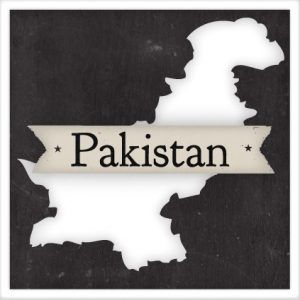 A Christian teenager was arrested last week by police in Pakistan on allegedly blasphemy charges, according to media sources.
A Christian teenager was arrested last week by police in Pakistan on allegedly blasphemy charges, according to media sources.
Shahzad Masih, 16, who worked as a sweeper at the Shahmim Riaz hospital in Dinga city in Punjab Province’s Gujrat district, was accused of insulting the prophet Muhammad by a member of Tehreek-e-Tuhafaz, an Islamist extremist party.
Since his arrest on July 14, his family has not been able to see him and police have denied holding the boy.
Shahzad’s family explained that last month the boy had an argument on religious issues with his accuser, Ishtiaq Qadri but a hospital physician, Dr. Tariq brought the situation under control.
On 13 July, Qadri again provoked Shahzad, and accused him of insulting Mohammed.
“I have raised Shahzad as a devout Christian. I have never taught my son to hate people of other religions,” Shahzad’s mother said rejecting the accusation. “This is why I’m sure the charges against him are false.”
After his arrest, the boy’s family was forced to flee the city of 80,000, home to about 150 Christians, after death threats were made at a nearby mosque. On social media, the young man’s picture began circulating with the word “laanat” (shame).

Speaking on behalf of the Islamist group, imam Gazi Saqib Shakeel said that “the judicial system should inflict the worst possible punishment on Shahzad Masih so that no one will dare commit blasphemy again ever.”
No Mercy or Compassion
Insulting the Prophet Muhammad in Pakistan is a crime punishable with death, while offending the Holy Koran incurs life imprisonment. The blasphemy laws remain an extremely sensitive issue in predominantly Muslim nation and they have drawn intense criticism even within the country. Rights organizations say the law is often misused to settle personal scores.
A “Tool” for Persecution
For Wilson Chowdhry, chairman of the British Pakistani Christian Association, the arrest of the Christian boy is a source of sorrow. He lamented that the draconian blasphemy laws were being used as a tool for discrimination and forcible conversion every day while the world stood silent. “This poor boy will now face a most daunting court case and will lose most of his life in prison; moreover, in the current climate a sentence could lead to his death via judicial or extrajudicial process,” Chowdhry said.
Perhaps, Pakistan’s most famous blasphemy victim is Asia Bibi, a Christian woman who was sentenced to death in 2010 for insulting Muhammad, an allegation she denies. Pakistan’s Supreme Court adjourned her death sentence appeal on October 13 last year, after one of the 3 judges recused himself from the case.
Former Punjab governor Salman Taseer and Catholic minister Shahbaz Bhatti were both assassinated in early 2011 after they defended Asia Bibi and spoke out against her death sentence and the misuse of the blasphemy laws.
Blasphemy Cases Increasing
Cases of blasphemy allegations are increasing in Pakistan. In April, a mentally-ill man was beaten up by a charged crowd in Chitral for allegedly saying blasphemous things in a mosque. A few weeks before that incident, Mashal Khan, a 24-year-old student of the Abdul Wali Khan University Mardan, was mercilessly lynched by a mob after being accused of posting blasphemy online.
